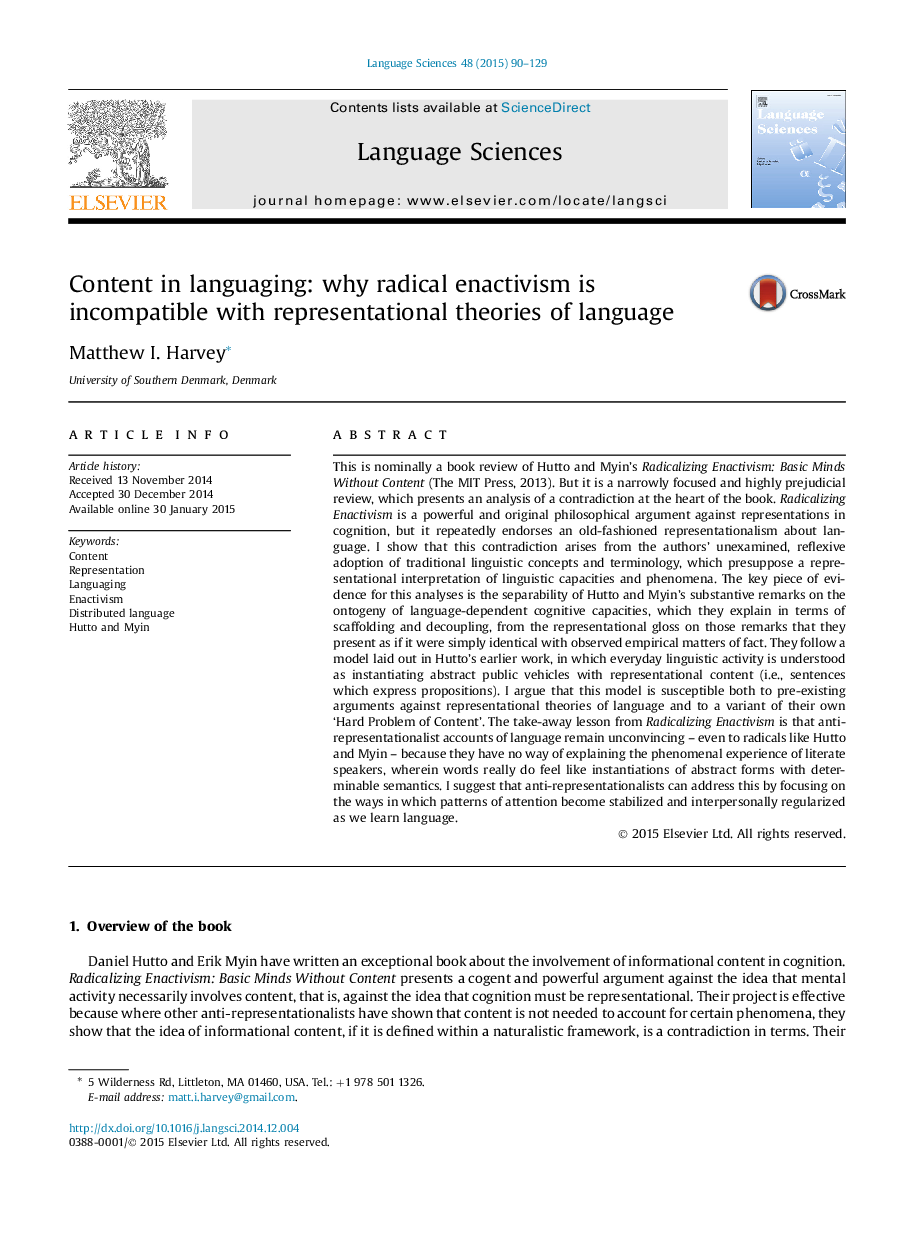| کد مقاله | کد نشریه | سال انتشار | مقاله انگلیسی | نسخه تمام متن |
|---|---|---|---|---|
| 1103068 | 1488154 | 2015 | 40 صفحه PDF | دانلود رایگان |
This is nominally a book review of Hutto and Myin's Radicalizing Enactivism: Basic Minds Without Content (The MIT Press, 2013). But it is a narrowly focused and highly prejudicial review, which presents an analysis of a contradiction at the heart of the book. Radicalizing Enactivism is a powerful and original philosophical argument against representations in cognition, but it repeatedly endorses an old-fashioned representationalism about language. I show that this contradiction arises from the authors' unexamined, reflexive adoption of traditional linguistic concepts and terminology, which presuppose a representational interpretation of linguistic capacities and phenomena. The key piece of evidence for this analyses is the separability of Hutto and Myin's substantive remarks on the ontogeny of language-dependent cognitive capacities, which they explain in terms of scaffolding and decoupling, from the representational gloss on those remarks that they present as if it were simply identical with observed empirical matters of fact. They follow a model laid out in Hutto's earlier work, in which everyday linguistic activity is understood as instantiating abstract public vehicles with representational content (i.e., sentences which express propositions). I argue that this model is susceptible both to pre-existing arguments against representational theories of language and to a variant of their own ‘Hard Problem of Content’. The take-away lesson from Radicalizing Enactivism is that anti-representationalist accounts of language remain unconvincing – even to radicals like Hutto and Myin – because they have no way of explaining the phenomenal experience of literate speakers, wherein words really do feel like instantiations of abstract forms with determinable semantics. I suggest that anti-representationalists can address this by focusing on the ways in which patterns of attention become stabilized and interpersonally regularized as we learn language.
Journal: Language Sciences - Volume 48, March 2015, Pages 90–129
